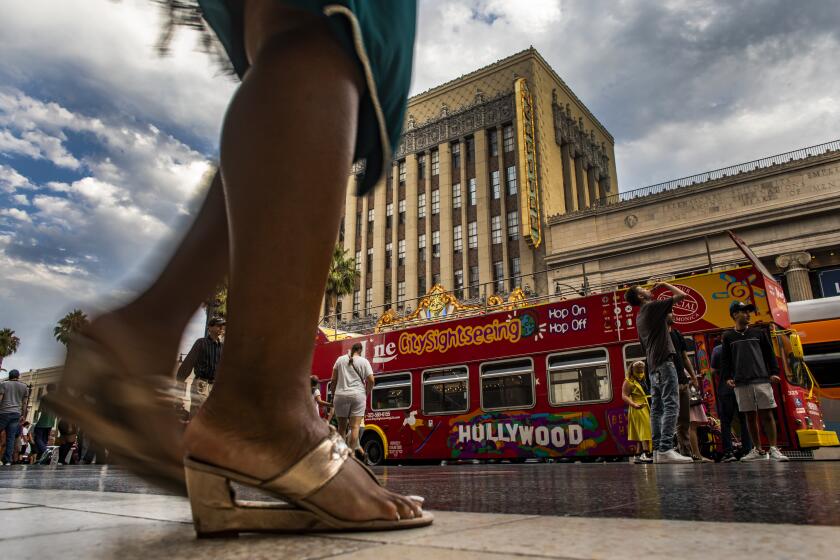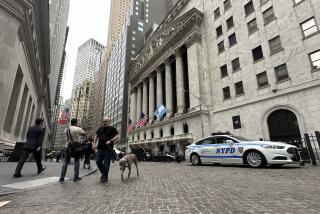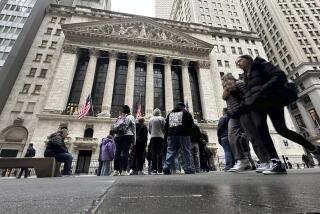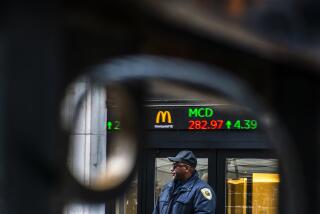S&P hits new record amid rising concerns about pandemic

A choppy day on Wall Street ended Monday with the Standard & Poor’s 500 index and Dow Jones industrial average notching new highs after recovering from an early slide.
The indexes each rose 0.3%, extending their winning streak to a fifth straight trading day, while the Nasdaq fell 0.2%. Technology and healthcare stocks accounted for much of the gain in the S&P 500. Sectors traditionally considered lower risk, including utilities and companies that make food and personal goods, also helped lift the market. Those gains outweighed a pullback in banks, energy stocks and a swath of retailers and travel sector companies.
Despite the latest gains, there are signs that investors have turned cautious with the market at all-time highs amid rising coronavirus infections in the U.S. and around the globe due to the highly contagious Delta variant.
Traders shifted money into U.S. bonds, which helped drag bond yields lower. Small-company stocks fell, knocking the Russell 2000 index 0.9% lower. Nearly twice as many stocks in the New York Stock Exchange fell than rose.
With international tourism languishing, businesses along Hollywood Boulevard are finding success courting domestic travelers.
The S&P 500 rose 11.71 points to 4,479.71. The Dow added 110.02 points to 35,625.40. The Nasdaq fell 29.14 points to 14,793.76. The Russell 2000 lost 19.69 points to 2,203.41.
Stocks have been pushing to ever higher records in the last couple of weeks even amid choppy trading as investors try to gauge the impact of rising virus cases. Analysts had expected economic growth to slow from its breakneck pace earlier this year, but the highly contagious Delta variant has prompted even more caution from investors.
The concerns are being heightened as students head back to school or prepare to head back at the end of August. School shutdowns because of the virus could crimp a recovery in the job market if parents have to stay home. A resurgence could also stifle the recovery for many businesses that rely on people leaving their homes to eat, shop and get other services.
Data out of China showed the COVID-19 pandemic continues to hurt economies around the world. Chinese industrial production and retail sales both rose last month, but at a far weaker pace than what economists had expected.
China’s economy is suffering from supply chain issues, where manufactured goods that would typically be on their way to foreign markets have either remained unfinished or stuck in shipping containers. The pandemic has made hiring workers harder as well.
The collapse of the Afghan government over the weekend was also on investors’ minds. While the economy of Afghanistan is small, the country is located in a delicate part of the world, sandwiched between the economic giants of South and East Asia and the oil-rich Middle East.
The price of U.S. crude oil fell 1.7% and weighed down energy companies. Exxon Mobil dropped 1.5% and Chevron closed 1% lower.
Shares in some retailers and tourism-related companies also fell. Caesars Entertainment slid 4% and Gap dropped 3.1%.
Bond yields fell and pulled banks lower. They rely on higher yields to charge more lucrative interest on loans. The yield on the 10-year Treasury fell to 1.26% from 1.29% late Friday. Wells Fargo lost 1.9% and Citigroup dropped 1.4%.
Also dampening investors’ optimism was the University of Michigan consumer sentiment index from Friday, which fell to 70.2 from its previous level of 81.2 in July. That was the largest drop in sentiment since April 2020, when the pandemic took its initial grip on the country.
The unexpectedly bad reading was almost entirely due to the spread of the Delta variant, which has caused hospitals to fill up with unvaccinated patients across the U.S.
More to Read
Inside the business of entertainment
The Wide Shot brings you news, analysis and insights on everything from streaming wars to production — and what it all means for the future.
You may occasionally receive promotional content from the Los Angeles Times.











